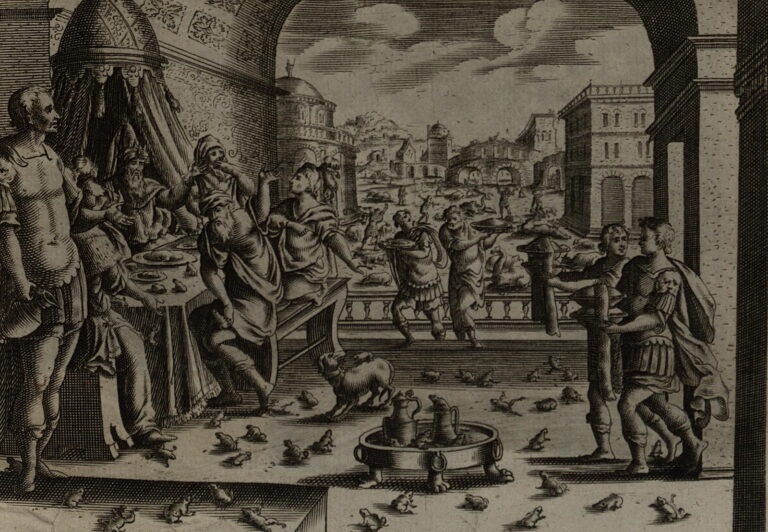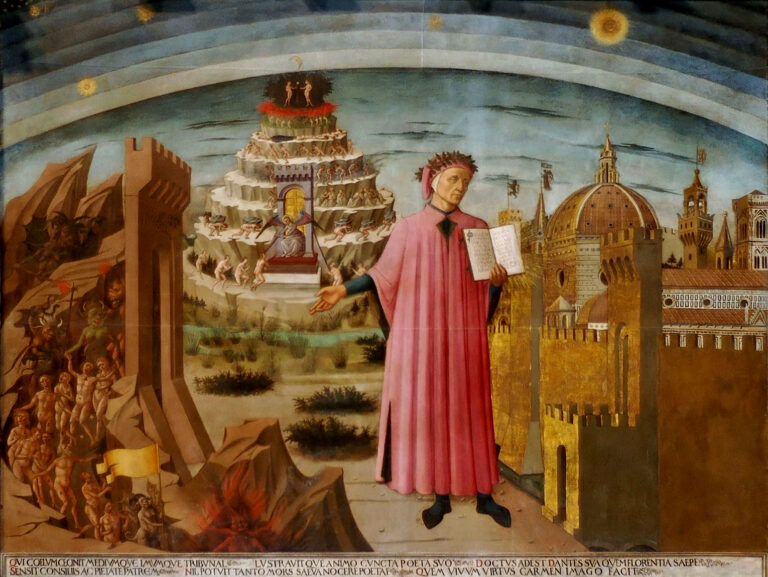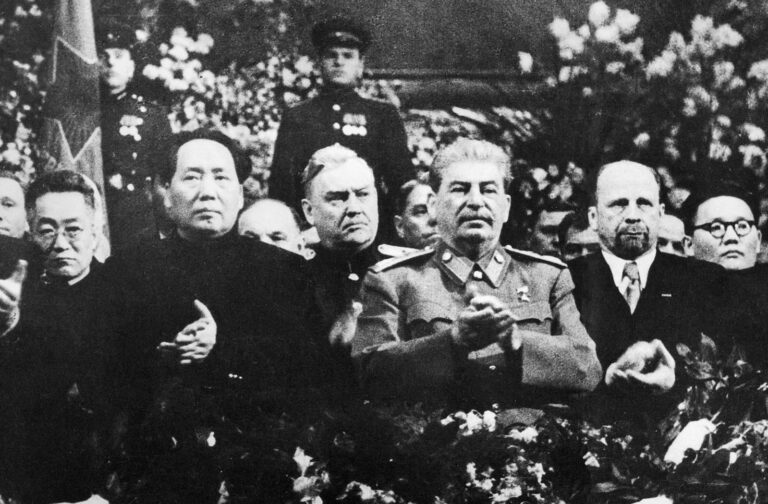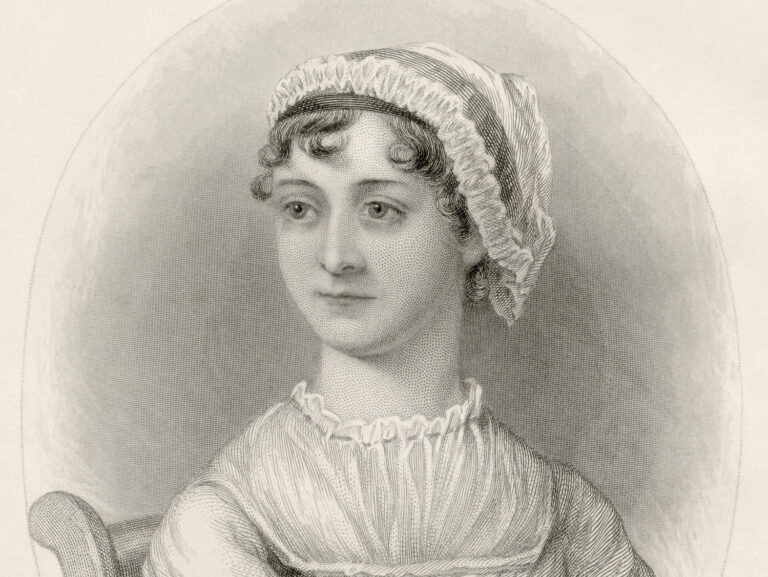Aeneas and New Beginnings
The poet Virgil was commissioned by Caesar Augustus to write a founding myth for the Roman Empire. As a result, Virgil produced one of the most famous works of Western civilization: the Aeneid. This complex poem illustrates the relationship between human choice, the gods’ manipulation of events, and the will of Fate, which is unalterable by both gods and men.
The protagonist of Virgil’s poem is Aeneas, a Trojan who escapes the Greek army with a small remnant of his people at the fall of Troy. Aeneas leads his people on a journey to found a new civilization that becomes one of the greatest in world history.
In “Great Books 101: Ancient to Medieval,” Professor Patricia Bart provides an illuminating overview of the Aeneid. She explains that one of the principal lessons learned from the poem is that perseverance through moments of extraordinary despair can lead to greatness. In one night, Aeneas loses his wife and his homeland, and we are made to feel Aeneas’ pain by the power of Virgil’s poetry.
Book II opens with Aeneas beginning to tell the tale of the fall of Troy:
Silence. All fell hushed, their eyes fixed on Aeneas now
as the founder of his people, high on a seat of honor,
set out on his story: “You ask me to bring to life once more,
how the Greeks uprooted Troy in all her power,
our kingdom mourned forever. What horrors I saw,
a tragedy where I played a leading role myself.
Who could tell such things—not even a Myrmidon,
a Dolopian, or comrade of iron-hearted Ulysses—
and still refrain from tears?”
The Story of the Trojan Horse
Aeneas’ excruciating regret is palpable throughout book II.
He details the story of the Trojan horse, an impious subterfuge by the Greeks to breach the impregnable walls of Troy. The giant wooden horse, containing the best soldiers of the Greeks concealed within its womb, is discovered by the Trojans, along with the Greek Sinon who is ostensibly “left behind” to persuade the Trojans to accept the gift. Sinon says the horse is made in honor of Minerva, and if the Trojans do not accept it, disaster will befall Troy. However, Laocoon, a Trojan priest, is not fooled one bit.
Aeneas recounts:
But now, out in the lead with a troop of comrades,
down Laocoon runs from the heights in full fury,
calling out from a distance: “Poor doomed fools,
have you gone mad, you Trojans?
You really believe the enemy’s sailed away?
Or any gift of the Greeks is free of guile?
Is that how well you know Ulysses? Trust me,
either the Greeks are hiding, shut inside those beams,
or the horse is a battle-engine geared to breach our walls,
spy on our homes, come down on our city, overwhelm us—
or some other deception’s lurking deep inside it.
Trojans, never trust that horse.”
Laocoon then, “with all his might . . . hurled a huge spear straight” into the womb of the horse. And “quivering, there it stuck, and the stricken womb came booming back from its depths with echoing groans.” This should alert the Trojans to what is inside. But, Aeneas laments:
If Fate and our own wits had not gone against us,
Surely Laocoon would have driven us on, now,
to rip the Greek lair open with iron spears
and Troy would still be standing—
proud fortress of Priam, you would tower still!
But Fate intervenes. Two large serpents come up from the sea and devour Laocoon and his two sons and slither to Minerva’s shrine. The Trojans, believing this to be a sign from the goddess, take the horse inside their city gates, and disaster befalls them that night.
The Death of Priam and the Flight of Aeneas and His People
Later, Aeneas witnesses the death of Priam, the king of Troy, which leads him to worry about the safety of his father Anchises, his wife Creusa, and his son Iulus.
Then, for the first time the full horror came home to me at last. I froze.
The thought of my own dear father filled my mind
when I saw the old king gasping out his life
with that raw wound—both men were the same age—
and the thought of my Creusa, alone, abandoned,
our house plundered, our little Iulus’ fate.
At that moment, Aeneas abandons his public duty to fight for his city and pursues his private duty to save his family.
I look back—what forces still stood by me?
None. Totally spent in war, they’d all deserted,
down from the roofs they’d flung themselves to earth
or hurled their broken bodies in the flames.
Aeneas then flees to his house to get his family out.
So come, dear father, climb up onto my shoulders!
I will carry you on my back. This labor of love
will never wear me down. Whatever falls to us now,
we both will share one peril, one path to safety.
Little Iulus, walk beside me, and you, my wife,
follow me at a distance, in my footsteps.
But with flames, chaos, and death all around them, Creusa becomes separated from Aeneas as they seek safety. Painfully, Aeneas recounts:
Oh dear god, my wife, Creusa—
torn from me by a brutal fate! . . .
Raving, I blamed them all, the gods, the human race—
what crueler blow did I feel the night that Troy went down?
Aeneas rushes back to try to find Creusa and fills with grief upon encountering her ghost, which speaks comforting words to him before departing.
My dear husband, why so eager to give yourself
To such mad flights of grief? It’s not without
the will of the gods these things have come to pass.
But the gods forbid you to take Creusa with you,
bound from Troy together. The king of lofty Olympus
won’t allow it. A long exile is your fate . . .
the vast plains of the sea are yours to plow
until you reach Hesperian land, where Lydian Tiber
flows with its smooth march through rich and loamy fields,
a land of hardy people. There great joy and a kingdom
are yours to claim, and a queen to make your wife.
Dispel your tears for Creusa whom you loved.
I will never behold the high and mighty pride
of their palaces, the Myrmidons, the Dolopians,
or go as a slave to some Greek matron, no, not I,
daughter of Dardanus that I am, the wife of Venus’ son.
The Great Mother of Gods detains me on these shores.
And now farewell. Hold dear the son we share,
we love together.
Aeneas longs to speak to her one last time, but the moment Creusa finishes her parting words, she dissolves into the empty air with Aeneas trying desperately to embrace her: “her phantom sifting through my fingers, lights as wind, quick as a dream in flight.”
Aeneas ends his tale matter-of-factly, as one resigned to the difficult journey ahead. Reluctantly, and with heavy hearts, the Trojans must turn their backs on the city they love, now in flames:
The Greeks had taken the city, blocked off every gate.
No hope of rescue now. So I gave way at last and
lifting my father, headed toward the mountains.
Professor Bart ends by asking, “At the fall of Troy, who could have envisioned Rome?” It’s a sobering but optimistic question to contemplate. All human things have an end, but a new and perhaps greater beginning awaits those courageous enough to face the reality of their situation.







